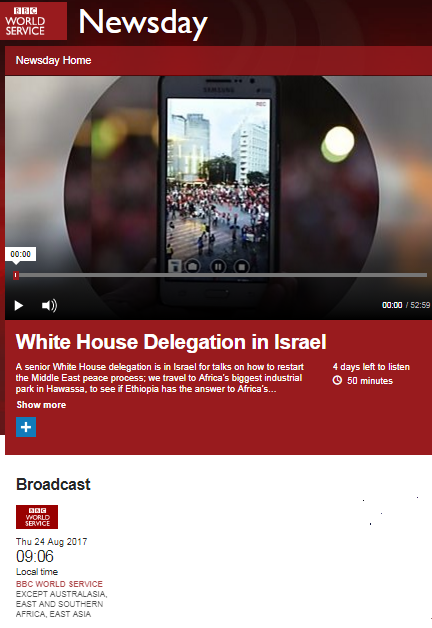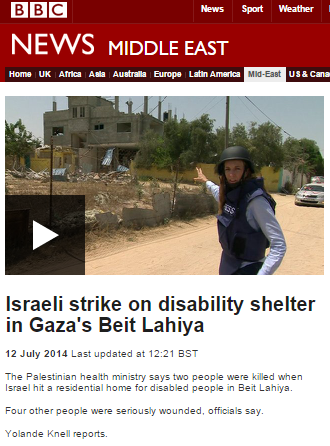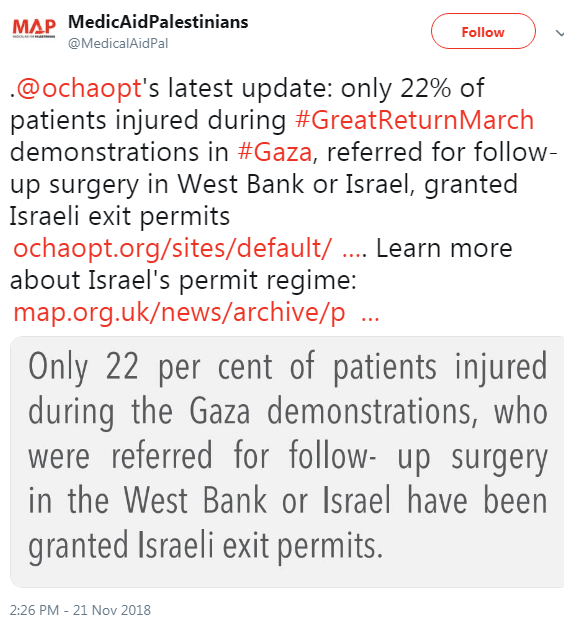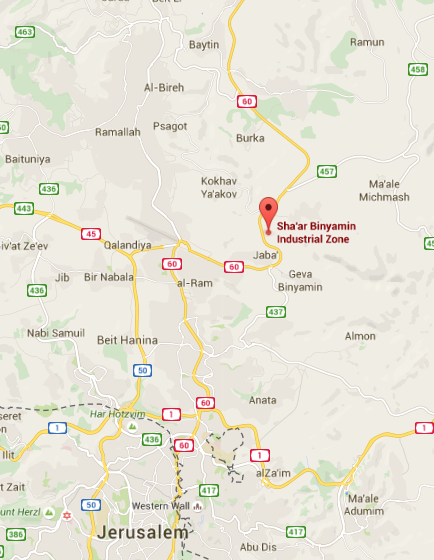In March of this year a BBC News website report failed to tell audiences the whole story behind a UN Human Rights Council anti-Israel resolution.
“Knell does not however inform BBC audiences that the resolution was initiated by the Palestinians and promoted by various Arab and Muslim countries. Despite her use of the term “Palestinian lands” and the fact that the report opens by telling readers that “Israel has criticised the UN Human Rights Council for voting to establish a database of firms doing business in settlements in the occupied West Bank”, Knell does not tell readers that the resolution also includes the Golan Heights.
Readers are not told that at the same session – which took place during the week in which five years of civil war in Syria were marked – the UNHRC also passed a resolution calling on Israel to relinquish the Golan Heights to Syria along with condemnation of alleged ‘human rights abuses’ against the Druze population of the Golan.”
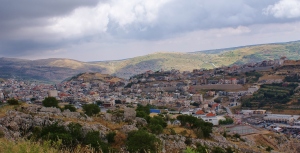
The Mayor of the Golan Heights town of Majdal Shams recently gave an interview in which he addressed one of the persistent and perennially predictable UN resolutions concerning the Golan Heights and its Druze population.
“A leader of the Druze population of the Golan Heights disputed the assertion of a United Nations committee that accused Israel of imposing economic and social hardships on his community.
Dulan abu-Saleh, the mayor of Majdal Shams, the largest Druze town in the Golan, told Makor Rishon that the UN Economic and Social Council’s recent statement on the area was “a total joke,” the daily reported Friday. […]
“I don’t understand what they’re talking about, it’s laughable,” abu-Saleh said. Druze in the Golan “don’t serve in the IDF and so far are only receiv[e] from the state.” Referencing the war in Syria, he said: “Why don’t they condemn the horrors in Syria, where dozens of children are killed daily? Golan residents have a good life.”
He also said: “Although we weren’t included in some major cabinet decisions on budgets, when we build and make up plans we never felt discrimination. On the contrary, we always found an attentive ear.”
Prior to the eruption in 2011 of a civil war in Syria, only 1,700 of the Golan’s Druze claimed Israeli citizenship offered to them. Hundreds have applied since then.”
In addition:
“Karim Batkhish, a resident of the town of Masa’ada, is quoted as saying: “The war in Syria is irrelevant to us. Some may say they support [Syrian President Bashar] Assad but it’s a lie to show Syria we’re with them. They’re lying, no one wants to see Syria here.””
Since the beginning of the Syrian civil war, BBC reporters have periodically produced reports from the Golan Heights, all of which have presented an outdated and monochrome portrait of the Golan Druze which fails to inform audiences of the changes that events of recent years have brought about.
In 2013 it was Bethany Bell who reported that:
“Traditionally the Druze have had close religious and political ties to the family of the Syrian leader Bashar al Assad. The secretive Druze religion, like Mr Assad’s Alawite sect, draws on branches of Shia Islam and strong Syrian nationalism has tended to mean loyalty to the Assads.”
In 2015 Kevin Connolly told BBC audiences:
“Most of the Druze of the Israeli-occupied Golan continue to regard themselves as Syrians. They follow the television news from Damascus and await the reunification of a country from which they were cut off by the wars of 1967 and 1973.”
In 2016 BBC audiences were told by Diana Darke that:
“Interrupted by periodic explosions from the direction of Damascus, Abu Amin and I exchange poignant memories of the Syrian capital where he studied for four years. ‘Although the Israelis pressure us, we will never give up our Syrian nationality’ he assures me. ‘This war will end one day and our families will be joined again’. […]
Abu Amin’s generation still treasures memories of Damascus but the Golan’s younger Druze – deprived of such cherished dreams – have found their own uniquely non-political vision of their future. Key to the Druze faith is reincarnation of souls – male to male, female to female – always into a newborn child. They simply believe they will be reincarnated in their next lives into the right part of Syria.”
There is a very interesting story to be told about the ways in which the Syrian civil war has affected residents of the four Druze villages on the Golan Heights and their relationship with Israel. It is a story, however, which the BBC continues to overlook, preferring instead to adhere to its long outdated narrative.

